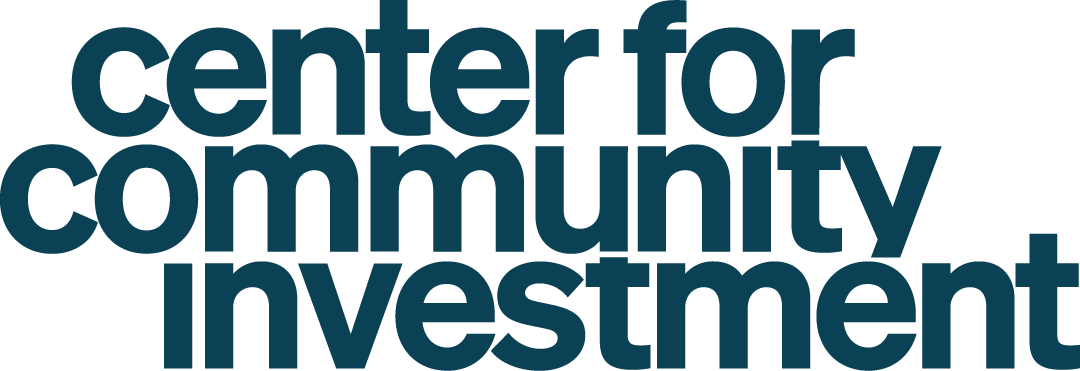It is only fitting that our new administration should be launching its work as Black History Month begins. If there has ever been a time that this country needs to center Black people, it is now. Four hundred years of history led to the events of 2020, when Black people died from COVID-19 and suffered the pandemic’s economic consequences in horrifyingly disproportionate numbers, and the country faced a racial reckoning after the murders of Breonna Taylor, George Floyd, and too many others. But now, we have the opportunity to make change. This February, CCI is spotlighting four Black women alumnae of our Fulcrum Fellowship, who will share their visions for how to center Black people in community development.
First, Joanna Trotter spotlighted a Chicago collaborative that is including Black and Latinx community members in identifying local economic recovery and neighborhood investment strategies. Then, Sarida Scott focused on the importance of centering the needs of Black workers in such strategies, especially in places like Detroit whose historic unemployment issues stem not just from economic fluctuations but from the long-term impact of system racism. Today, Ja’Net Defell argues for shifting the focus through which we view Black neighborhoods from a deficit lens to an opportunity lens, emphasizing the importance of creative community investment in projects that go beyond serving baseline needs.
2021: Changing the Perspective from Need to Opportunity
2020 was one of the most challenging years in our history. The global COVID-19 pandemic shined the light on issues that have been lingering in the shadows but came to the forefront as the world stood still. Systemic racism, racial inequality, and white privilege reared their ugly heads on the national stage as historic events unfolded, most notably the killing of George Floyd. Many of us are hopeful that 2021 will allow our nation and the world to recover, refresh, take two.
For Black communities, 2021 offers an opportunity to seize the moment and test the commitment from business, government, and philanthropy to do better by us. One way we can seize this opportunity is by changing the perspective. Historically, these actors have viewed their work and strategies in our communities, if they have any, through a deficit lens. But instead of considering Black communities to be distressed, which automatically connotes risk, funders and investors can approach these communities from a perspective of opportunity with the goal of fostering creativity. Rather than assuming basic human needs are always the priority, they need to change the way financial resources show up in Black communities by making more flexible capital available to allow communities to create and build on their priorities.
Affordable housing, healthcare, and education are all critical services, but those services should be a baseline for any community, not always the primary focus for Black communities. In my work, I search for innovative and transformational community development projects that I can support and help to secure funding. Unfortunately, those projects are far and few. Community development agencies lack the resources and capacity to think boldly and truly support Black wealth building. They stay within the boundaries of what’s fundable, which is often limited to basic human needs like affordable housing. These projects usually have a guaranteed source of income from a local, state, or federal agency or are wrapped in tax credit incentives that de-risk the investments and make the transactions safe bets.
As a result of this limited focus, Black communities have fewer quality of life amenities and less Black ownership than white communities. For example, in Chicago, there are currently close to three times more businesses per capita in the affluent 60614 zip code than in 60621, which is predominantly Black.[1] Similarly, 60621 has only one third of the business types available in 60614, despite the fact that Black people also use florists, shipping/printing services, shoe repair, and so on. In 2016, according to the Annual Survey of Entrepreneurs, only 2.1% of the businesses in the Chicago metro were Black-owned compared to 73% white-owned.
The kinds of innovative, community-based projects I’m talking about can bring a wealth of opportunity to their neighborhoods while also increasing Black wealth. Take Green Era Chicago, whose award-winning anaerobic digester project located on a brownfield site in South Chicago will bring healthy food, jobs, and environmental sustainability. Or the Obsidian Collection Archives, which is building a profit-sharing global repository of historical black images and restoring the Bronzeville mansion once owned by celebrated Black journalist Lu Palmer. The mansion will house the archives, apartments, a coffee shop, event spaces, and more, bringing housing, jobs, and professional, performance, and social opportunities for creatives.
To shift the dynamics of investment in Black communities and encourage exciting projects like these, I challenge funders and the capital markets to do three things:
1) Spend less time examining the perceived risk of funding projects in Black community and instead look for opportunities to make them work. This includes extending investment beyond the safety net of tax credits.
2) Calibrate financial metrics and criteria for deal-making to recognize that there has never been a level playing field between Black and white communities. This includes lowering loan-to-value ratios and collateral requirements.
3) For philanthropy in particular, consider funding and fostering creative economic development that builds Black wealth, including leveraging more grant dollars to support the ideation stage and to serve as first loss capital to help move projects forward.
If we shift our focus from need to opportunity and make creative thinking and creative financing our goal in 2021 and beyond, we can do better by Black communities.
Ja’Net Defell currently leads Community Desk Chicago, a program initiative of the Chicago Community Trust. Ja’Net has more than 20 years of management consulting, urban planning, and real estate development experience with a passion for revitalizing communities and incubating transformational ideas.
[1] This data is based on a January 2021 analysis of current business licenses in the city of Chicago’s data portal.

